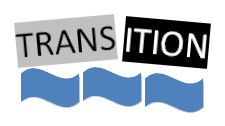 Have you ever read a book where the scene is progressing nicely, things are happening, people are talking and then … you’re somewhere else. From one paragraph to the next, you’ve gone from a moonlit beach to a crowded avenue. You were just starting to understand the relationship between John and Marsha and now suddenly you’re introduced to Tony.
Have you ever read a book where the scene is progressing nicely, things are happening, people are talking and then … you’re somewhere else. From one paragraph to the next, you’ve gone from a moonlit beach to a crowded avenue. You were just starting to understand the relationship between John and Marsha and now suddenly you’re introduced to Tony.
“Marsha, hello,” John called brightly. He was obviously pleased to see her. His eyes shone at her with reflected moonlight.
“Hello, John.” Her voice was low, cautious. Her eyes darted nervously about the deserted beach, and she caught her lower lip in her teeth.
“How are you?” he asked as he stopped in front of her.
Tony cursed the Black Friday crowds while he shouldered his way down the sidewalk. He hated shopping.
Does this make you do a double-take? Do you have to go back and re-read just to make sure you didn’t miss something? In recent months I’ve read more than a few books that had trouble with transitions. Now I’ve yammered on before about how, when we write, we need to make sure the reader is flowing along with us effortlessly. Yes, there may be drama in the story and yes, there may be tension, but there shouldn’t be any of that in the reader’s efforts to follow the story. The reader may need to work at piecing out the story line in a thriller, may need to tease out the truth from the lies and misdirections in a mystery, but they should not have to work at following the writing. In my opinion, if the reader does have to work at that, we haven’t done our job well at all. Continue reading “Stop the Chop: Writing Smooth Transitions”

 Meet Minnie. She ruled my household for the last three years of her life and here’s how she adopted me.
Meet Minnie. She ruled my household for the last three years of her life and here’s how she adopted me. Let’s do a little thought experiment. Pick your favorite classic of literature. One of those books you were forced to read years ago in school. Make it something old enough to be in the public domain. I’m partial to A Tale of Two Cities myself. Your choice is probably different. Maybe Pride and Prejudice, Tom Sawyer, or even (God forbid) Moby Dick (just call me bored stiff). Now pick something more modern, but still a classic you might have read in school from fifty or a hundred years ago. My choice is The Old Man and the Sea. Maybe you prefer Catch-22, something by Faulkner (The Sound and the Fury or As I Lay Dying are a couple possibilities). Or if you prefer a book with a little more heat and your school district was much more enlightened than mine you might choose Lady Chatterly’s Lover.
Let’s do a little thought experiment. Pick your favorite classic of literature. One of those books you were forced to read years ago in school. Make it something old enough to be in the public domain. I’m partial to A Tale of Two Cities myself. Your choice is probably different. Maybe Pride and Prejudice, Tom Sawyer, or even (God forbid) Moby Dick (just call me bored stiff). Now pick something more modern, but still a classic you might have read in school from fifty or a hundred years ago. My choice is The Old Man and the Sea. Maybe you prefer Catch-22, something by Faulkner (The Sound and the Fury or As I Lay Dying are a couple possibilities). Or if you prefer a book with a little more heat and your school district was much more enlightened than mine you might choose Lady Chatterly’s Lover. Last year I wrote and published three new books. I also taught a self-publishing workshop, spoke at numerous writers groups and festivals, gave a couple of talks at libraries, and I did a couple of book signings too. I thought I’d had a fairly productive year until I read
Last year I wrote and published three new books. I also taught a self-publishing workshop, spoke at numerous writers groups and festivals, gave a couple of talks at libraries, and I did a couple of book signings too. I thought I’d had a fairly productive year until I read